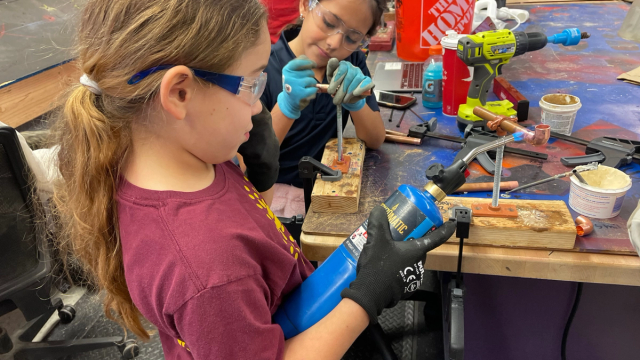3 Tips for Navigating the HVAC Skilled Labor Shortage
A skilled labor shortage is nothing new to the HVAC industry, but that doesn’t make navigating it any easier. Here are some tips to help you through it.

As an HVAC contractor, you know the struggles of the skilled labor shortage all too well. While some industries have primarily struggled with labor since the pandemic, the HVAC industry has felt the impact since 2016. New energy regulations and the construction boom have put pressure on the industry for years. Add in demand for upgrades while everyone was at home during the pandemic, and there’s just no way to keep up.
HARDI is predicting the HVAC market will slow down this year, nearly a quarter of skilled trade workers are within 10 years of retirement age. How do you make sure your business maintains a stable talent pipeline? We have some tips to help you.
1. Offer Competitive Compensation
There are many labor shortage causes, and compensation plays a significant role. According to Pew Research Center, 63% of American workers left their jobs in 2021 due to low pay, and over half reported earning money at their new company. The pattern of workers changing companies has been referred to as “The Great Reshuffle” instead of “The Great Resignation.” Most workers aren’t leaving the workforce altogether; they’re just moving to higher-paying positions.
Clearly, offering competitive pay is the key to hiring and retaining employees. But if you’re already having cash flow issues, that can feel like a tall order. How will you pay competitive wages if you struggle to pay your employees their current wages?
Consider offering financing to your customers if you don’t already. Financing can increase your sales by 20%, and you’ll be paid when the job is done. Those extra dollars can go a long way toward helping you remain competitive in the struggle for talent.
Competitive compensation isn’t limited to wages, though. Be sure to factor in benefits and professional development opportunities. Include these in your job ads when recruiting HVAC technicians so they can get a glimpse of your entire compensation package. And if you’re working on retaining skilled employees, consider scheduling HVAC training during the off-season — and pay them for their time. This way, they have reliable income throughout the year, not just when jobs are coming in.
2. Create a Comfortable Culture
Culture can be just as important as compensation to employees. Consider this: 71% of employees are willing to accept a lower salary for the right company culture.
One way to foster a great company culture is by offering your employees flexibility and an excellent work-life balance. We know, we know: another seemingly impossible ask for this industry.
While you may not be able to provide as much flexibility as an office or work-from-home job, you can still give your employees a sense of control over their schedules. For example, one Detroit-based contractor provides a schedule 90 days in advance and honors time off requests. This way, his techs can plan around their work schedule rather than waiting until the week before to make plans.
Investing in your employees is also an essential part of company culture. Similar to salary issues, 63% of American workers left their jobs in 2021 because their company did not offer advancement opportunities. Each employee will have different career goals, so consider meeting individually to learn their goals and how you can get them there.
An easy way to work towards these goals is by setting up a mentorship program between veterans and new techs. Mentorship encourages team building while working towards professional goals: veterans are developing leadership skills, and new techs are growing their knowledge base.
3. Incorporate Technology
“Do more with less.” How many times have you heard that phrase thrown around?
As you work on hiring and retaining employees, it’s a good idea to take a second look at your current operations. Are you making the most of your employees’ days? Do they have the right tools to do their jobs efficiently? In a skilled labor shortage, efficiency can not only keep things afloat — it can help you take on more projects.
For instance, field service software can help you keep track of your employees in the field and schedule appointments more efficiently. Some even allow you to easily schedule appointments based on distance, so your techs spend less time driving.
Or maybe you have a new recruit that needs a little more guidance before they’re ready to take calls on their own, so you can’t schedule as many appointments. Companies have developed technology to help your newer techs diagnose and fix problems in the field, enabling them to take more calls earlier in the training process.
Technology can also help with sales. At FTL Finance, for instance, our project estimator takes the work of calculating potential monthly payment options off your techs. All they have to do is plug in the service amount and choose up to three financing programs to get an estimated monthly payment for each. They can then send a PDF of that proposal to the customer right from project estimator. All of this can be done from the field, no paper required.
Getting through the skilled labor shortage is a full-team effort. In addition to our digital tools, FTL offers training on our tools and financing programs for your technicians. This way, they can confidently offer financing in the field and help build your business while you’re busy recruiting. Connect with us to learn more.
 Industry Trends & InsightsHow Contractors Can Attract the Next Generation of HVAC Techs
Industry Trends & InsightsHow Contractors Can Attract the Next Generation of HVAC Techs Industry Trends & Insights2026 HVAC Industry Trends a Contractor Can’t Afford to Miss
Industry Trends & Insights2026 HVAC Industry Trends a Contractor Can’t Afford to Miss Operational ExcellenceGet Your Business Ready for the New Year: Work Smarter, Not Harder
Operational ExcellenceGet Your Business Ready for the New Year: Work Smarter, Not Harder